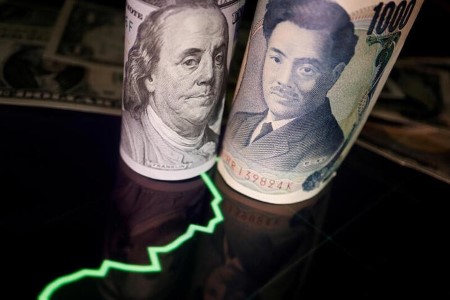




Inflation Update: Green light for easing
 DOWNLOAD
DOWNLOAD

December Economic Update: One for them, one for us
 DOWNLOAD
DOWNLOAD

Philippines Trade Update: Trade trajectories trend along
 DOWNLOAD
DOWNLOAD


Japan signals chance of yen intervention; market unconvinced

TOKYO, Sept 14 (Reuters) – The Bank of Japan conducted a rate check with banks on Wednesday in apparent preparation to step in to tame sharp yen falls, providing what analysts said would only be a brief respite for the currency, given the low chance of actual yen-buying intervention.
The yen rose by more than 1% on news of the rate check, reported earlier by local media and confirmed by Reuters, in a sign of rising market nerves amid the currency’s recent sharp declines. At 1036 GMT, the currency stood at 143.07 per dollar, well above a 24-year low near 145 per dollar hit last week.
Finance Minister Shunichi Suzuki said authorities would make no advance announcement of plans to intervene, and usually would not confirm they had stepped into the market after doing so.
“Yen moves have been quite rapid over the past few days,” Suzuki told reporters. “If we were to step in, we will do so swiftly without any interruption.”
News of the rate check underscores growing concern among policymakers over the yen’s sharp pace of fall, which not only hurts consumption by inflating the cost of imported raw material but heightens uncertainty for firms in making business decisions.
But analysts said the move would give only brief support for the currency, as Tokyo would likely struggle to gain consent from G7 counterparts to actually conduct yen-buying intervention.
“Never say never. They have been stepping up the rhetoric lately. But I would be cautious about the inevitability of their intervening. Japan is a signatory to the G20 and they have got policies about not intervening,” said Rob Carnell, head of ING’s Asia-Pacific research.
The yen has depreciated nearly 30% this year, as the Bank of Japan (BOJ) has kept policy super-loose while many of its global peers, such as the US Federal Reserve, have aggressively raised interest rates to combat surging inflation.
Data issued on Tuesday showing unexpectedly strong US inflation for August prompted bets the Fed would keep hiking rates for longer, adding downward pressure on the yen.
A rate check by the BOJ, a practice in which central bank officials call up dealers and ask for the price of buying or selling yen, is seen in markets as a possible precursor to action.
The BOJ acts as an agent of the Ministry of Finance (MOF), which has jurisdiction over currency policy and decides whether and when to intervene in the market.
While many traders remained doubtful that intervention was imminent, the timing of the rate check suggests that 145 per dollar will be an important level for markets.
“My feeling is that the MOF won’t intervene at this stage and will leave it at verbal warnings,” said Takeshi Minami, chief economist at Norinchukin Research Institute in Tokyo.
“There’s still a week before the Fed’s rate-setting meeting. I don’t think markets believe the ministry will intervene at current dollar/yen levels.”
With finance minister Suzuki saying the government will “coordinate closely with the BOJ,” market attention is turning to what the bank could decide at its Sept. 21-22 policy meeting, which will follow the Fed’s rate-setting meeting on Sept. 20-21.
Sources familiar with its thinking have told Reuters earlier the BOJ has no intention of raising interest rates or tweaking its dovish policy guidance to prop up the yen.
While the BOJ is widely expected to keep interest rates ultra-low, it may issue a warning against the yen’s sharp move after its meeting, either in its regular policy statement or in Governor Haruhiko Kuroda’s briefing, analysts say.
Once welcomed for giving exports a boost, the yen’s weakness is becoming a cause for headaches for Japanese policymakers, because it hurts households and retailers by inflating the already rising prices of imported fuel and food.
(Reporting by Kantaro Komiya, Leika Kihara and Tetsushi Kajimoto; Additional reporting by Daniel Leussink; Writing by Kim Coghill; Editing by Neil Fullick and Bradley Perrett)
This article originally appeared on reuters.com





 By Reuters
By Reuters